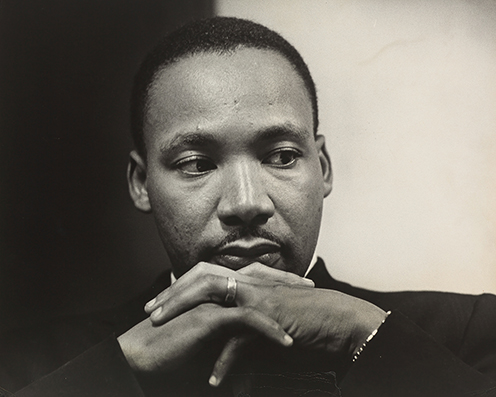Martin Luther King Jr. shortly after his release from Reidsville Penitentiary, Georgia
Jack Lewis Hiller (born 1930)
Gelatin silver print, 1960

National Portrait Gallery, Smithsonian Institution
One of the most frightening episodes in Martin Luther King’s early civil rights career occurred in October 1960, after he was arrested during a student-led protest at Rich’s department store in Atlanta. Refusing to post bail, King and the students vowed to remain in the Fulton County jail until all charges were dropped. While negotiations were under way to secure their release, a judge in neighboring DeKalb County ordered that King be held for violating probation for an earlier traffic citation. After a brief hearing, the judge revoked King’s probation and sentenced him to four months’ hard labor. Manacled and shackled, King was later transported to Georgia’s Reidsville Penitentiary. Fearing for his safety in the notoriously violent state prison, King’s supporters sought help from presidential candidate John F. Kennedy, who placed a reassuring call to Coretta King. But it was Robert Kennedy’s forceful call to the DeKalb judge that resulted in King’s release.
